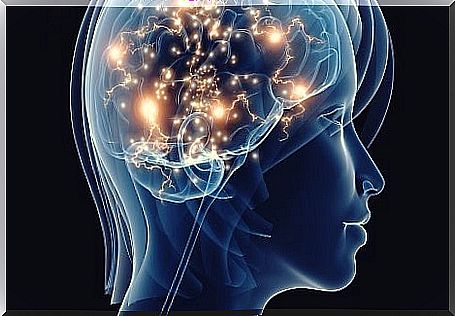Mental Illnesses, Are They Written In DNA?

Can we get to inherit mental illness from our parents? Is the probability of suffering depression, schizophrenia or even an attention deficit perhaps imprinted in our DNA? Well, any expert in mental health knows that mental problems are actually a combination of biological, environmental, psychological and genetic factors.
Indeed, genetics have a significant but not determining weight. That is, if our mother has a history of major depression, we have a certain probability that at some point we will suffer from it. But obviously, it is not a cause and effect. Now, in this constant search to understand the universe of mental illnesses, there is never a lack of studies that attempt to address this relationship in greater depth.
Thus, in an article published only a few months ago in The Guardian , we were alerted to something very specific. The incidence of mental disorders is increasing. There are increasing diagnoses of depression and anxiety disorders. The number of suicides among the younger population has also risen in recent years.
We know that genes carry an important weight. The information we inherit from our parents in our DNA makes us more or less vulnerable to certain disorders, explains the doctor

Mental illnesses and genes, what relationship is there?
In a study carried out by Dr. Eric Nestler of the Icahn School of Medicine in Mount Sinai, New York, he points out something more than interesting: genetic factors are important in the etiology of most mental illnesses. However, research carried out with identical twins reveals that environmental aspects, for example, are often more important.
Something like having a complicated childhood, with the presence of mistreatment or abuse, determines in most cases the risk of suffering from a psychological disorder. Despite this, despite being clear that traumatic experiences, lack of attachment or experiences such as bullying are the elements that increase the risk of suffering from a disorder at some point, science continues to delve into the subject of genes.
These are the data that we are learning about it.
The mutation of
So far, studies on the relationship between certain mental disorders and genes are not conclusive because human neurobiology is very complex. However, we know what processes can cause us to suffer from mental illness and one of them is genetic mutations.
An example, if in our DNA there is a mutation of the molecule methylenetetrahydrofolate reductase (MTHFR) our health
Mental illnesses in the family environment
There is an often determining factor about mental illness and our genes. As the experts point out, a person will have a 90% chance of suffering from a disorder if two factors are combined: genetic inheritance and environment. What does this mean?
Let’s imagine that we grow up in a family environment where we are raised by a person suffering from depression. We only have that parent. The upbringing and attachment we receive is of poor quality, lacking in affection and with the constant problems of this mental illness. In this case, the weight of genetics is intermingled on the one hand and, on the other, that traumatic childhood. The risk that we ourselves will develop a disorder is therefore high.

There are mental illnesses with similar genetic components
A mental illness is not inscribed in DNA, it is actually expressed through RNA molecules and in the way they combine with each other. Thus, something interesting that has been discovered thanks to a study carried out by the University of California is that autism, schizophrenia and bipolar disorder share some physical characteristics at the molecular level, specifically, gene expression patterns in the brain.
There are certain mutations that, occurring in various areas of our brain, can lead to one mental illness or another. With this, we also understand that the weight of genetics is there, but sometimes, various combinations, anomalies or mutations, can lead (or not) in the appearance of any of these disorders. The factors that make them possible are infinite and at the moment, we do not know them exactly, but science continues to advance to give us answers.









